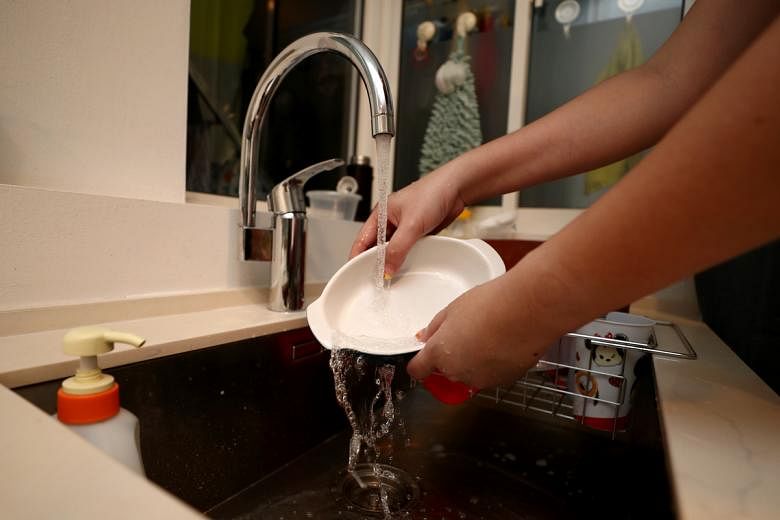SINGAPORE - The authorities are looking into the possibility of "sewage surveillance" - or the sampling of used water for pathogens - as an early warning system for viral outbreaks like Covid-19, The Straits Times has learnt.
National water agency PUB said in response to queries that it is aware of research findings in the Netherlands on the testing of used water and its potential in sounding an early warning alarm for outbreaks.
But Mr Maurice Neo, PUB's director of the water reclamation network, noted that this research is still in its early stages.
He added: "PUB is also working with local and overseas researchers to develop it further and will continue to keep abreast with the latest global developments and research on Covid-19."
In March, Dutch researchers from the KWR Water Research Institute published a scientific paper pending peer review on pre-print site medRXiv.
The researchers said their findings showed that the virus causing Covid-19 had not been detected in samples collected across eight sites - including in Amsterdam, the Hague, Utrecht as well as Amsterdam Airport Schiphol - before the first case was reported in the Netherlands on Feb 27.
But on March 5, a specific fragment of the viral genetic material could be detected in the sewage of five sites. Later that month, the same fragment could be found in the sewage at six sites.
The authors noted that it was unlikely that wastewater will become an important transmission pathway for coronaviruses like Sars-CoV-2, the virus that causes Covid-19. The World Health Organisation (WHO) has also noted that there have not been reports of faecal-oral transmission of the disease.
But the increasing circulation of the virus in the population will increase the virus load into the sewer systems, the Dutch researchers noted.
More research in this area could help determine if sewage surveillance could complement current clinical surveillance, which is limited to the Covid-19 patients with the most severe symptoms, they added.
Singapore's National Environment Agency (NEA) said researchers from its Environmental Health Institute are studying the virus causing Covid-19 in wastewater in Singapore.
"As the research is still in its early stages, time is needed to conduct more detailed analysis and to draw useful results. More information will be provided when ready," NEA said.
Currently, used water from households is not sampled for pathogens as it undergoes treatment at the water reclamation plants before being recycled or discharged into the sea. Water is tested after treatment to ensure it is safe for consumption or discharge.
PUB regularly monitors drinking water quality, right up to customers' taps, to ensure it complies with the standards stipulated by governmental regulations.
Mr Neo said water quality is also well within WHO's guidelines for drinking water.
Water experts The Straits Times spoke to were assured of Singapore's drinking water quality.
Professor Asit Biswas, a distinguished visiting professor from the University of Glasgow and chief executive of the Third World Centre for Water Management in Mexico, said: "With respect to Covid-19, Singapore has a robust wastewater treatment system which will take out all viruses, including this coronavirus. There is thus absolutely nothing to worry about," said Prof Biswas.
He added that current measurement instruments were also sensitive enough to detect drugs and disease vectors, including the coronavirus, in waste water.
However, this information may be of limited value, he said.
"While we can detect them, it does not provide any information on who are the specific individuals who are infected, or how they can be identified. Thus, this information is of rather limited value," said Prof Biswas, adding that knowledge of the novel virus was ever-changing. "It is thus one piece of additional information which should go into overall considerations," he said.
But Professor Shane Snyder, executive director of the Nanyang Environment and Water Research Institute at the Nanyang Technological University, said he strongly advocates the use of wastewater-based epidemiology for Singapore.
Smaller and densely populated countries have great advantages while implementing such an approach, he said.
Prof Snyder acknowledges that many challenges and knowledge gaps still exist in the field, but the increasing number of countries investing in this approach highlights the technique's potential and benefits.
"For Singapore, I believe wastewater-based epidemiology should be considered for monitoring the extent of infection in general, such as at our centralised wastewater treatment facilities, and to pinpoint new outbreaks," he said.
This could include monitoring sewage from specific Housing Board blocks, dormitories, and condominium complexes, he said.












